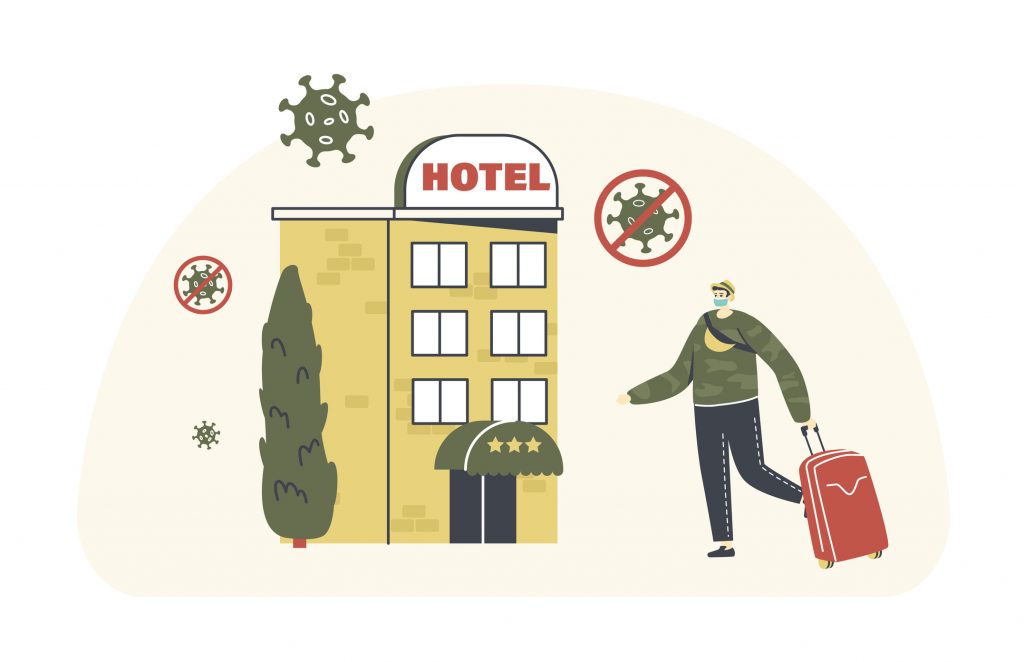So-called “price gouging” is when a business providing essential consumer goods or services takes advantage of abnormal market conditions caused by events such as natural disasters, armed conflicts or other crises, by raising prices to excessive levels. To date, 35 U.S. states have enacted anti-price gouging legislation. Typically, these statutes make it an illegal act for a business to raise prices or rates for essential goods or services during an emergency. In most cases the laws impose specific price limitations for essential items or services where a state of emergency has been declared, and those limitations commence immediately upon the publication of a state of emergency by a governing official.
Lodging is considered an essential consumer service under anti-price gouging laws. Some state statutes specifically identify hotels and motels to be providers of essential services, and these laws contain specific language addressing how hotels and motels must restrict their rates while the limitations are in effect.
The COVID-19 crisis resulted in the largest number of declarations of emergency the country has ever seen, at every governmental level. Many of them are still in effect. Others may be reinstituted should the number of viral cases increase. As re-opening proceeds, Hotels may be tempted to make large rate adjustments to offset revenue losses due to the crisis. Hotels must take care to understand whether they are: (1) in a state with an anti-price gouging law, and (2) whether an active state of emergency still exists.
State attorneys general are the regulatory enforcers of price gouging laws. During investigations, hotels are required to disclose comparative room rate data to investigators. The issue is complicated by the fact that many hotels set rates on a semi-automated basis using systems that track demand and “comp set” rates published by competing hotels, and in those circumstances room rates may fluctuate beyond the imposed statutory limits without hotel personnel controlling the fluctuations. Moreover, investigators are not always aware of nuances in the hotel industry that should fairly be taken into account when deciding what comparative rate data to use as evidence. Responding to investigations can be time-consuming and expensive.
Here are steps that hotel companies can take to protect themselves:
- Have a policy and a practiced procedure. One person should act as an alert system if a state of emergency is declared, and should notify any properties in that state.
- Learn the laws. Price gouging laws differ from jurisdiction to jurisdiction in terms of what factors trigger them, how prices should be constrained and for how long.
- Document everything. Documentation is key because you may have to make some judgement calls. Document that you have a procedure in place that complies with the law, you made an effort to follow that procedure, and all of the decisions you made about rates were informed.
- Stay on top of passive rate adjustment tools. Many properties use passive rate-setting revenue management systems. During a state of emergency these must be monitored to make sure the automatic system is not establishing rates that will be in violation of price gouging statutes.
This article is part of our Conference Materials Library and has a PowerPoint counterpart that can be accessed in the Resource Libary.
HospitalityLawyer.com® provides numerous resources to all sponsors and attendees of The Hospitality Law Conference: Series 2.0 (Houston and Washington D.C.). If you have attended one of our conferences in the last 12 months you can access our Travel Risk Library, Conference Materials Library, ADA Risk Library, Electronic Journal, Rooms Chronicle and more, by creating an account. Our libraries are filled with white papers and presentations by industry leaders, hotel and restaurant experts, and hotel and restaurant lawyers. Click here to create an account or, if you already have an account, click here to login.

